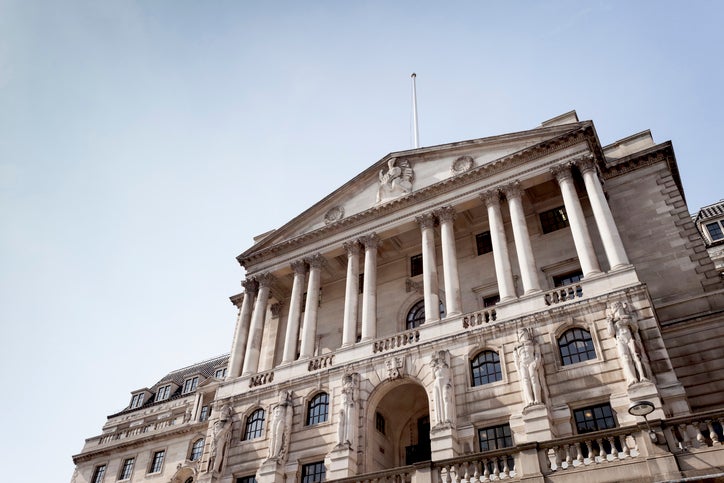
The Bank of England will consider the potential of a digital currency in a key meeting of central banks being held tomorrow.
Taking the form of a virtual roundtable at the Official Monetary and Financial Institutions Forum (OMFIF), the meeting will see the Bank of England joined by the Swiss National Bank, Magya Nemzeti Bank and ING Group, with blockchain platform Cypherium also in attendance.
It will explore the potential applications, design and benefits of central bank digital currencies (CBDCs), which the Bank of England has increasingly being exploring this year.
“We are looking at the question of, should we create a Bank of England digital currency,” said Andrew Bailey, governor of the Bank of England, during a webinar event in July.
“We’ll go on looking at it, as it does have huge implications on the nature of payments and society.”
In June the bank also initiated a consultation exploring the potential launch of a state digital currency.
How well do you really know your competitors?
Access the most comprehensive Company Profiles on the market, powered by GlobalData. Save hours of research. Gain competitive edge.

Thank you!
Your download email will arrive shortly
Not ready to buy yet? Download a free sample
We are confident about the unique quality of our Company Profiles. However, we want you to make the most beneficial decision for your business, so we offer a free sample that you can download by submitting the below form
By GlobalDataWhy a digital currency could bring powerful benefits to the Bank of England
Adopting a digital currency would create a number of opportunities for the Bank of England, particularly around traceability and auditing.
Zurab Ashvil, CEO and founder of L3COS, which pitched a blockchain operating system to the Bank of England, told Verdict that this traceability would make “fraud, money laundering or other black-market financing impossible”.
There are also benefits for cross-border payments, as shown by JP Morgan’s own internal cryptocurrency, which was launched in 2019 to make transfers between accounts instant.
A digital currency could also provide benefits to the recovery from Covid-19, particularly due to growing demand for digital transactions and concerns surrounding cash shortages.
Central banks show growing interest in CBDCs
CBDCs are attracting growing support, with 80% of the world’s central banks believed to be investigating their potential.
This may have been accelerated by private sector moves, particularly the launch of Facebook’s Libra. There have been growing fears that the tech giant’s cryptocurrency could threaten the monetary control held by central banking authorities, forcing them to up their game on the digital front.
“The importance of discourse when it comes to building the financial future shouldn’t be undermined,” said Sky Guo, CEO of Cypherium and founding member of OMFIF.
“With CBDCs still in their initial phase of conception, now is the time to debate the advantages and disadvantages of infrastructural ideas, especially related to how these instruments will interact and operate with each other.”
The virtual roundtable will begin at 1:30pm BST on 19 August.
Read more: Bank of England pitched blockchain operating system for digital currencies – but will it use it?





